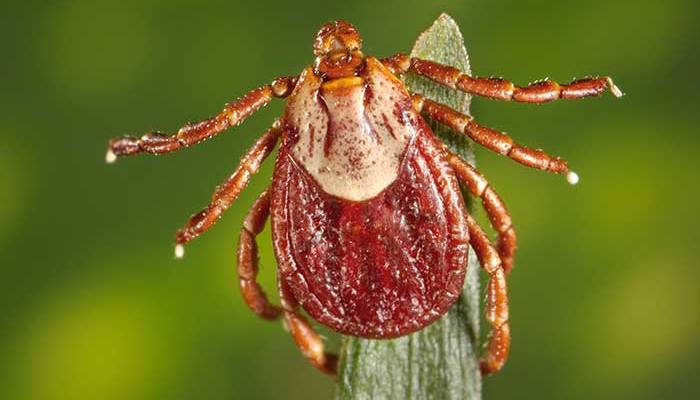Plants That Repel Wood Ticks Summers are certainly the days of our lives when we can go outdoors and play all around. Summers are also great seasons to start your gardening and plantation. This season serves as the best way to cope with the pre-requirements of a new baby plant. So, grab all your tools and start your plantation right away.
Oh! But wait, what would you do to protect them from insects and pests? Using chemicals will not be a great idea because of the toxins it contains. Are you looking for a better, healthier, and smarter alternative?
You have come to the right stop. Today we will brief you about various natural techniques that you can use to protect and keep your plants away from ticks, pests, and insects.
This article talks about different ways to deal with ticks on the wood and natural resources that can effectively be utilized to serve the purpose without using any chemical toxins and substances. This will help you efficiently work on the protection of your plants from ticks, flies, bugs, and other insects.
It is essential to understand that ticks and insects are more harmful to humans than plants. As much as they would completely extract the nutrition of the plant and eventually lead to the plants die, they also cause bacterial infection and skin rashes sensation.
These toxic elements from the insects and ticks might get dangerous if not treated well, and so it is essential to be careful with the ticks, insects, and pests for protecting yourself and your lovely plants.
You would not believe it if I said the only natural and reasonable way to protect your plants is by merely planting other plants. Okay, so let me explain with more clarity. Many plants have natural toxins that can prevent pests and insects or, sometimes, for that matter, the parasites from harming their parent plant.
These plants that repel ticks are considered rich in nutrition and protective toxins and so they can be used as a protection shield for your garden.
There are plants with antifungal, antimicrobial, and anti-parasite. These can be used in the defense and effectively accumulate your gardening techniques with coherence. A classic example of these properties is weed and tobacco. Tobacco has harmful toxins that can kill any pests or insects that meet it. Tada is not that a problem solved idea.
The Plants That You Can Use to Protect Your Garden from Ticks and Insects
We are going to discuss below the 5 most effective plants that are all-purpose and will keep your garden bright and vibrant with fuller colors and sweet fragrance and at the same time help protect your plants from ticks, flies, bugs, and other insects and pests. The five plants are listed below in detail –
Lavender
Lavender is a beautiful plant well known for its fragrance, and it is a vibrant color that is aesthetically pleasing and relaxing. This plant is literally an all-in-one variant for all purposes and repealing bugs and ticks. Lavender can be used to keep away bugs and ticks by its exuberant smell and attributes.
What you can do is crush the lavender leaves and flowers for their oil, add a little water to reduce the toxins a little, and spray it all over. This way, you can cover more areas of your garden with the spray bottle.
Roses
Roses are beautiful flowers with a great capacity like that of insecticides and pesticides. The rose plant works well when it starts blooming flowers, and its thick thorns effectively keep away the bugs and ticks from intervention. Roses also exuberate a sweet smell that lightens up the garden mood. The rose plant is also helpful to keep away mosquitoes from the surroundings.
Rosemary
Rosemary is a complete game-changer in the world of repelling insects, bugs, and mosquitoes. What makes it the best is that its aura lasts for several meters, and it lubricates beauty with benefits.
Rosemary can also be used for its oils and to keep your clothes from your pet’s fur. Rosemary has leaves that can be crushed to extract oil that can help with protection from ticks and bugs. It also has the potential to exuberate a sweet scent. Altogether, a game-changer and indeed the best for protecting your plants.
Marigold
Marigold is well known for its bright, vibrant color and easy-going way of the plantation. Moreover, marigold does not even occupy a lot of space and at the same time is used for lots of purposes, especially during a pooja at home.
However, this vibrant bright plant is also a great repeller of ticks, bugs, flies, and other insects that are harmful to your plants. The best part is that it is so effortless you do not even have to extract its oil or spray it all over? The only thing you must do is plant it all over the garden, and Tada, you are done.
Garlic
Garlic is known for its fantastic flavor and smell. It adds on a whole new level of generosity in cuisines when it comes to food, but we are not aware of the potential of garlic to be an effective solution for repelling pests and ticks. What we can do is crush the garlic cloves for their fragrance and spread them around in your garden. The smell lasts for almost a week and helps keep the ticks and pets away for a long time.
Conclusion
We have discussed above five easy-to-plant and use techniques that are completely natural and exhibit the unique potential to protect the plants from ticks, bugs, flies, and insects.
Most importantly, these are chemical-free and do not involve any toxic substances, which makes it easier for you to maintain your plant’s nutrition and growth without any hindrance.
Do try these tricks out to make your garden fuller and complete with vibrant, colorful plants and flowers.










Comments